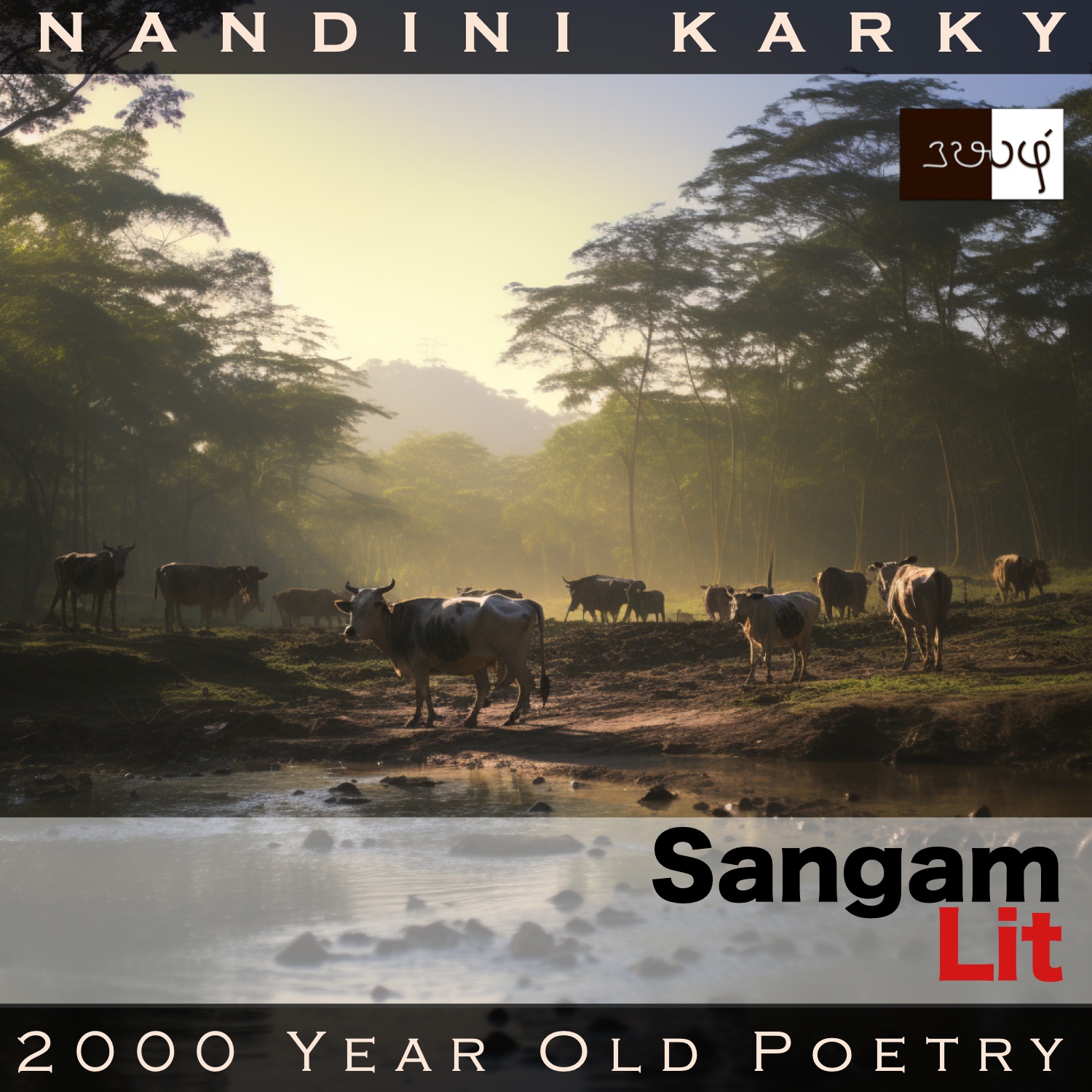Podcast: Play in new window | Download
Subscribe: Apple Podcasts | Spotify | Amazon Music | Android | iHeartRadio | TuneIn | RSS | More
In this episode, we perceive the subtleties in seeking charity, as depicted in Sangam Literary work, Puranaanooru 204, penned to the Velir King Valvil Ori by the poet Kazhaithin Yaanaiyaar. The verse is situated in the category of ‘Paadaan Thinai’ or ‘Praise’ and reveals the unshakeable affection the poet feels for this king.

ஈ’ என இரத்தல் இழிந்தன்று; அதன் எதிர்,
‘ஈயேன்’ என்றல் அதனினும் இழிந்தன்று;
‘கொள்’ எனக் கொடுத்தல் உயர்ந்தன்று; அதன் எதிர்,
‘கொள்ளேன்’ என்றல் அதனினும் உயர்ந்தன்று;
தெண் நீர்ப் பரப்பின் இமிழ் திரைப் பெருங் கடல்
உண்ணார் ஆகுப, நீர் வேட்டோரே;
ஆவும் மாவும் சென்று உண, கலங்கி,
சேற்றொடு பட்ட சிறுமைத்துஆயினும்,
உண்நீர் மருங்கின் அதர் பல ஆகும்;
புள்ளும் பொழுதும் பழித்தல் அல்லதை,
உள்ளிச் சென்றோர்ப் பழியலர்; அதனால்
புலவேன் வாழியர், ஓரி! விசும்பில்
கருவி வானம் போல
வரையாது சுரக்கும் வள்ளியோய்! நின்னே.
Another song situated in the territory of charity. The poet’s words can be translated as follows:
“To say ‘give’ and to plead to another is dishonourable; On the other hand, to say ‘I shan’t give’ is even more dishonourable; To say ‘take’ and to render is honourable; On the other hand, to say ‘I shan’t take’ is even more honourable;
Even though it’s crystal clear, those who are thirsty don’t drink from the roaring waves of the sea; Even though cows and horses drink from it, and muddied with slush, it stands disgracefully, the paths that lead to that source of drinking water are many;
People may blame the birds of omen and their time but never would they blame those to whom they went seeking; And so, I shall never feel dislike, O Ori, may you live long! Like rain clouds, that are accompanied by thunder and lightning in the sky, your generosity renders without bounds any!”
Let’s delve into these thoughts expressed. The poet talks about what’s disgraceful and what’s admirable in the domain of giving and receiving. In contrast to the poet in the previous verse, who says, ‘It’s your duty to give’, this poet says to ask a patron to give to them is disgraceful but something more disgraceful is for that patron to say that he wouldn’t give to the one asking. Then he talks about how understanding the mind of the supplicant and giving to them is honourable but even more honourable is for that supplicant to say ‘I do not want this’, because even though they are in want, they are standing up for a higher ideal – their principles.
The poet then talks about how though the ocean may be huge and clear, no one can drink from it, but on the other hand, even if a pond of drinking water is frequented by grazing cows and horses and thus stands muddied and small, so many paths will take people to it. In these two images, the poet leaves a subtle metaphor for how the vast wealth of the rich is of no use like the ocean’s waters if it’s not rendered unto the people and how even though some patrons may have lesser wealth like the much-used pond, that’s more precious because the fame of their generosity would lead many towards them. The poet then talks about how when such patrons are unable to give for some reason, the supplicants who came there trusting them would never say a word against those patrons but only blame their own bad luck. And saying that, the poet concludes that whatever be the response of this king, he shan’t feel any hatred for this king is known to be as generous as the rainclouds that blanket the lands below in prosperity. A verse that makes us respect this poet for showing us the way to seek something from an elevated and understanding stance.




Share your thoughts...